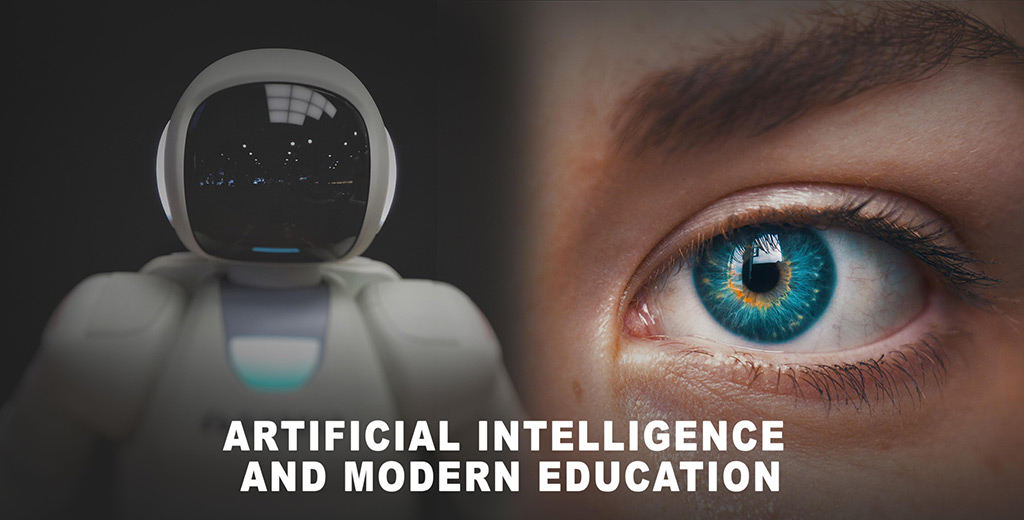The application of Artificial Intelligence (AI) in many businesses, as well as the accompanying competition to see who can produce the best one, is a contentious topic. Today’s scientific community is debating how artificial intelligence will do human tasks in the future. Trusting AI in education remains a grey issue in the midst of building computers that potentially replace human work in a variety of fields. While we have yet to construct self-aware robots such as those seen in popular film such as Star Wars, we have made sensible and often substantial use of AI technology in a variety of applications that, while not as awesome as androids, still affect our daily lives. Education is one area where artificial intelligence is expected to make significant improvements.
Can we put our trust in AI to teach future generations?
Consider a voice telling you to accomplish something as part of your study. There isn’t much to envision anymore because everything has gradually become a reality. Siri and Google Assistant, for example, are becoming our life counsellors, aides, alerts, and, to some degree, personal software gurus. Android robots, as shown in video games such as ‘War Robots,’ are a real possibility. The entire plot revolves around the struggle between the robots and humans to achieve equality amongst them. However, returning to the subject of Indian education, it has received mixed responses.
Basic educational activities, such as marking, can be automated using AI technology
Grading lot of homework for big lecture courses in college can be time-consuming, even when TAs divide it between them. Even in lower grades, teachers frequently discover that grading consumes a substantial amount of time, time that could be spent interacting with students, preparing for class, or working on career development. While AI may never be able to completely create real grading, it is getting close. Teachers may already automate grading for almost all types of choice questions and fill-in-the-blank tests, and computerized grading of student work may not be far after.
Educational software can be customised to meet the needs of individual students
One of the most significant ways artificial intelligence will impact education, from preschool through graduate school, is through the use of higher levels of personalized instruction. Most of this is already taking place, thanks to an increasing variety of adaptive learning programmes, games, and technology. Such systems meet the demands of the learner by emphasising specific topics, reinforcing concepts that students haven’t understood, and overall assisting students in working at their own leisure.
It can highlight areas where courses need to be improved
Instructors are not always conscious of loopholes in their lectures and instructional materials that can cause pupils to be puzzled about particular subjects. Artificial intelligence provides a solution to this challenge. Coursera, a huge open online course supplier, is already doing this. When a high number of students contribute incorrect answers to a group project, the system notifies the teacher and sends future students a personalised message with suggestions to the correct solution.
AI tutors could provide further assistance to students
While there are clearly benefits that actual instructors can provide that computers cannot, the future may see more pupils being instructed by tutors. Some artificial intelligence-based teaching applications already exist and can assist students with basic maths, writing, and other topic. These software can teach children the basics, but they aren’t great for helping students develop higher-order thinking and creativity, which are still facilitated by real-world teachers. However, this does not rule out the prospect of AI tutors being able to perform these tasks in the future.
Is India equipped for artificial intelligence in education?
If we take a rational perspective, it is the pupils who are receiving these academic support, and it is up to them to make the decision. A tailored strategy is required, yet India’s educational system employs a non inclusive approach. Individual preferences for such a large group are nearly difficult to discern. However, it is possible if each student is given a personal robot to handle their educational pursuits.It is a long way from being attainable. However, reducing the frequency at which technological wonders are achieved in the world of science, there is still reason to be optimistic.
A decent education is required to achieve a good career. It is critical to develop abilities connected with a specific career. A small divergence from the traditional doctor-engineer fixation has occurred. However, the millennials of India require some direction in terms of what they should follow.
We have a bunch of kids who wind up being the same like each other. Their life skills are honed and transformed into something required for the job, and the thrill of following a passion is lost. Recognizing someone’s vision and what they’re doing to achieve it is critical. Unfortunately, there is no AI in education that can solve India’s tremendous problem.
However, with an university education, it is always best to avoid AI. Experiences, with individuals and communities around you, are always the starting point for a college education. It is up to the youth to use their free will. It should not be taken lightly. However, instead of creating children jacks of all trades, the school educational system should assist them identify their skills. At the end of the day, it is entirely up to the students to determine what their desired education entails. However, India needs to improve the way ideas are taught and studied. AI in education can only help or improve in one area. It cannot completely replace something that can shape an individual.














